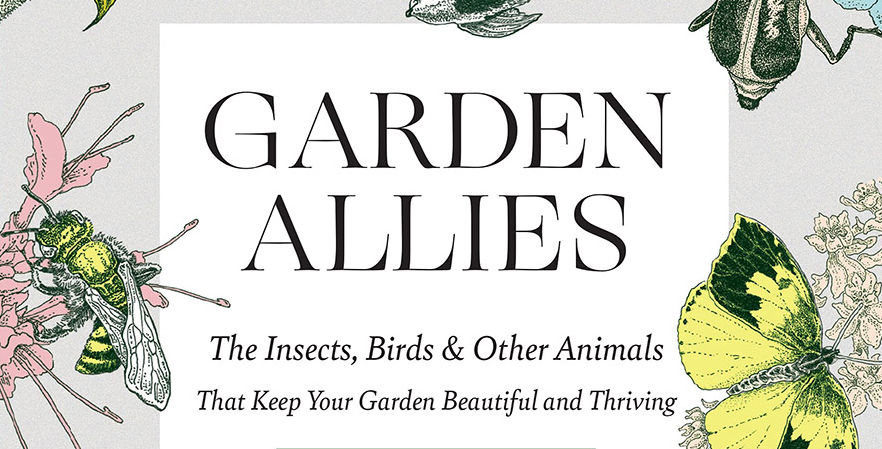
Book Review: Garden Allies

Contributor
- Topics: Growing for Biodiversity
The Insects, Birds & Other Animals That Keep Your Garden Beautiful and Thriving
![]() As editor of Pacific Horticulture magazine, I was thrilled when garden educator Frédérique Lavoipierre accepted my invitation to contribute a regular column exploring the roles that such animal visitors play in a healthy and diverse garden. She was more than enthusiastic. I had hoped for a year’s worth of “Garden Allies” columns, but Frédérique had a longer-range vision. She quickly assembled an outline of topics to cover over a period of several years. The column soon became the favorite reading in each issue of the magazine, according to random and informal surveys of our readers. When I retired in 2012, Frédérique was only partway through her long outline; I was pleased that my successor, Lorene Edwards-Forkner, continued to publish the “Garden Allies” column.
As editor of Pacific Horticulture magazine, I was thrilled when garden educator Frédérique Lavoipierre accepted my invitation to contribute a regular column exploring the roles that such animal visitors play in a healthy and diverse garden. She was more than enthusiastic. I had hoped for a year’s worth of “Garden Allies” columns, but Frédérique had a longer-range vision. She quickly assembled an outline of topics to cover over a period of several years. The column soon became the favorite reading in each issue of the magazine, according to random and informal surveys of our readers. When I retired in 2012, Frédérique was only partway through her long outline; I was pleased that my successor, Lorene Edwards-Forkner, continued to publish the “Garden Allies” column.
Now, Garden Allies is available as a book, filled with Frédérique’s engaging stories of the diverse array of life forms that help us to maintain healthy and productive gardens. The new book also includes beautiful line drawings produced by Craig Latker, a former student of mine in the landscape architecture department at UC Berkeley. An exceptional artist, Craig had graciously agreed to create the illustrations from the very outset of the magazine’s column.
Simply because of their astounding numbers and diversity, invertebrates fill the majority of pages in Garden Allies. From minute creatures, invisible without a microscope, to bees, bugs, butterflies, and more, Frédérique introduces each group with stories that make us want to know these critters in more detail.
She acknowledges that not all arthropods are a positive addition to a garden, but the pesky species are seldom a significant problem, and they often have some endearing qualities at some stage in their lives. The good guys—the truly beneficial organisms—invariably win out in the end, and the garden is better for the diversity they bring to it.
Beyond attacking the villains in the garden, many of these beneficial creatures provide critical pollination services for fruits and vegetables, whether edible or merely ornamental features of our favorite trees and shrubs. Though the smallest visitors often go unseen, their value as decomposers of organic matter or as facilitators of nutrient flows between soil and plants is paramount to the health of our gardens—and our planet.
A coyote has recently begun visiting my garden, and the wonderful result is a total disappearance of the rats that had plagued the garden for decades. While Garden Allies does not address the potential role of coyotes, Frédérique does devote a chapter to vertebrates, from reptiles and amphibians to birds and bats—megafauna on a small scale—that serve both to enliven the garden and help keep the pests under control.
To be honest, you won’t become an expert on all the insects, spiders, and millipedes—nor even the birds—that you might find in your garden with just a reading of Garden Allies, but the book includes a most helpful list of resources in film, print, and online to help you learn more about this fascinating aspect of the garden’s natural world.
I cannot imagine a garden without all these beneficial visitors bringing life and balance to the landscape. Garden Allies provides the perfect primer for what could easily become a lifelong dedication to the study of these fascinating creatures.
Review by: Richard G. Turner Jr., editor emeritus, Pacific Horticulture, 11/2021








Responses